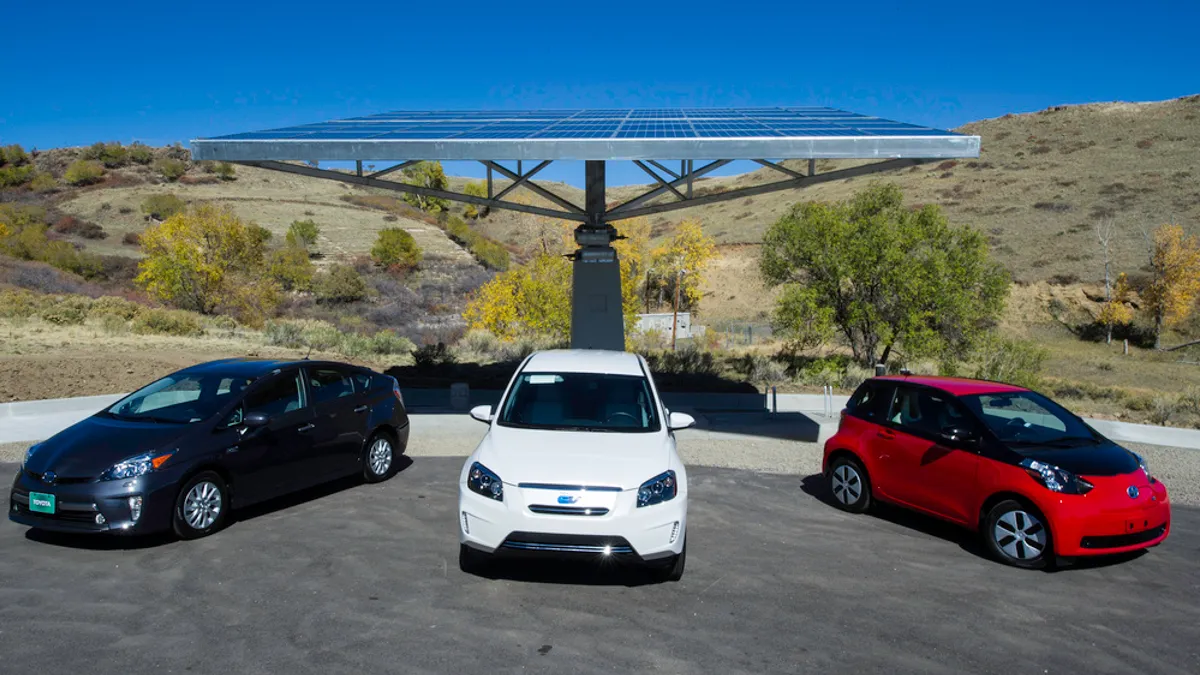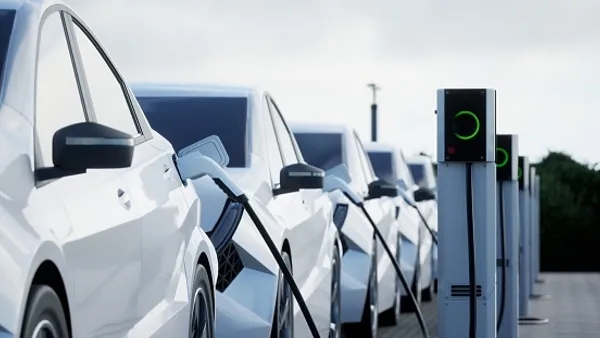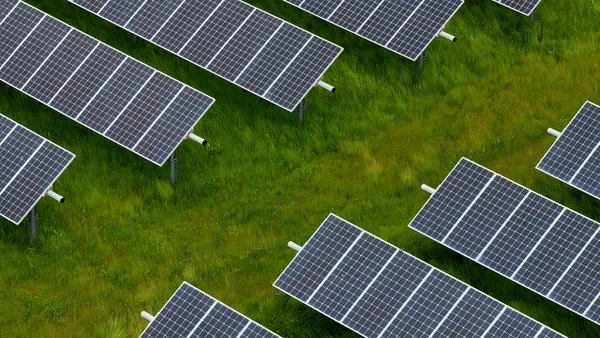Dive Brief:
- The Missouri Public Service Commission last week issued an order concluding electric vehicle charging stations are fundamentally different than a power plant—and so the commission does not have jurisdiction over the equipment.
- Ameren had proposed installing more than a dozen charging ports, but Midwest Energy News reports those may be on hold now as the PSC decision means the costs cannot be passed on the ratepayers.
- Clean energy advocates say the commission's decision could slow the development of charging infrastructure, as it may dissuade utilities from making investments they cannot ratebase.
Dive Insight:
There are a lot of things that Missouri regulators do regulate, but the commission's order last week also included a list of what it doesn't.
Regulators concluded that if they had jurisdiction over electric vehicle charging infrastructure, that ruling "would conceivably assert jurisdiction over other similar battery-charging services, such as smart phone charging stations or kiosks, RV parks that allow vehicles to connect to the park’s electricity supply, or airports that connect planes to a hangar’s electricity supply while parked."
The basic rationale comes down to this, said regulators: "the charging service is the product being sold, not the electricity used to power the charging system."
Ameren Director of Energy Services Dan Laurent told Midwest Energy News that the utility is considering the order to “determine the appropriate next steps." The utility had planned a string of charge points along I-70 and another in Jefferson City, Mo.
The decision follows a another decision in Kansas last year. Kansas City Power & Light hit pause on plans to install 1,100 charging stations after state regulators nixed the utility's plan to ratebase the investment.
The logic from the Kansas State Corporation Commission was different however: regulators concluded the utility had failed to demonstrate a need for the proposed Clean Charge Network. KCP&L had already installed 230 chargers out of a planned 315 in Kansas side of the Kansas City metropolitan area, but will hold off on the remaining 85.
Work on a network in Missouri was slated to continue, but regulators have yet to rule on the utility's plan to ratebase the equipment.














